Eaton Adds More I/O Options for SmartWire-DT
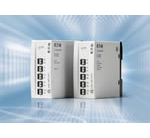
With the introduction of six new input/output modules, Eaton’s Electrical Sector has further enhanced the versatility and convenience of its innovative SmartWire-DT communication system, which virtually eliminates the need for conventional control wiring in panels. Two of the new modules are for use with digital signals and three are for analogue signals. The sixth new module is a universal type that makes it easy for users to provide for future expansion of SmartWire-DT installations.
The new digital modules added to the range are a four-input type with three-wire connection and an integrated short-circuit proof power supply, and an eight-channel output module that provides outputs rated 24 V dc at 0.5A.
For analogue applications, Eaton is now offering a four-channel input module suitable for use with industry-standard 0-20 mA and 0-10 V current and voltage signals, and a combined I/O module with two input and two output channels, which is once again designed for 0-20 mA and 0-10 V signals. The third new analogue module added to the SmartWire-DT range has five inputs for use with resistance-type temperature sensors. The module supports two- and three-wire connections, and is compatible with Pt100, Pt1000 and Ni1000 sensors.
Eaton’s new universal module for SmartWire-DT is primarily intended to be used as a “placeholder” in systems where future expansion is planned. The module is typically fitted in place of SmartWire-DT enabled devices such as motor protective circuit breakers and I/O modules, which will be added to the installation at some future date.
This allows users to design and program the full configuration of the installation without having to spend money on hardware that is not yet needed. And, when the time comes to put the expansion in place, all that’s needed is to replace the universal modules with the appropriate new hardware – no changes to the program or the system configuration are necessary.
Like all devices in the range, the new modules can be connected to the SmartWire-DT system at any point. This allows users to optimise space usage within the control panel and, in the case of the I/O modules, to minimise the amount of wiring needed for the connection of sensors and actuators.
Similar articles
More from Eaton Corporation
- IP-based automation system for underground applications 20th November 2020
- Engineering expertise keeps the blades turning 28th September 2020
- Blowout preventer hoses exceed the latest fire test requirements 9th October 2019
- Enhancing configuration software and increases flexibility 15th May 2018

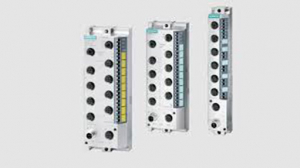
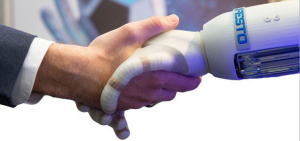
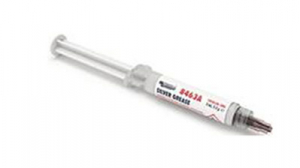
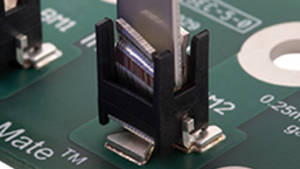







Write a comment
No comments